4 memory games for kids that I play with my 5-year-old to help him focus
Memory games for kids are great for ages 3 to 6 as this is a period of rapid brain development

Memory games for kids play a crucial role in promoting cognitive development - the ability to think and reason - in children. Here are my 5-year-old's favourites that he comes back to again and again.
These games not only sharpen memory skills but also improve concentration, attention span, and critical thinking abilities, plus they're fun - cementing their place in my son's best toys. Having a strong working memory means kids learn to retain information and then apply it. Solving maths problems in your head or remembering the names of people you’ve just met are examples of working memory.
Former early years teacher and mum-of-three, Jasmine tells us; "I hate playing with my kids - I know, I know. But memory games? I can play them for hours if the kids let me. I know that children with strong working memories can focus on activities and retain information with accuracy."
To help you make informed choices, we explore the best memory games for children aged 1-5 years old, along with the benefits they offer to young minds.
Memory games for kids
Memory games are excellent tools for early childhood development. These engaging activities enhance memory, problem-solving skills, and language development. By stimulating the brain and promoting fine motor skills, memory games contribute to the holistic growth of young minds.
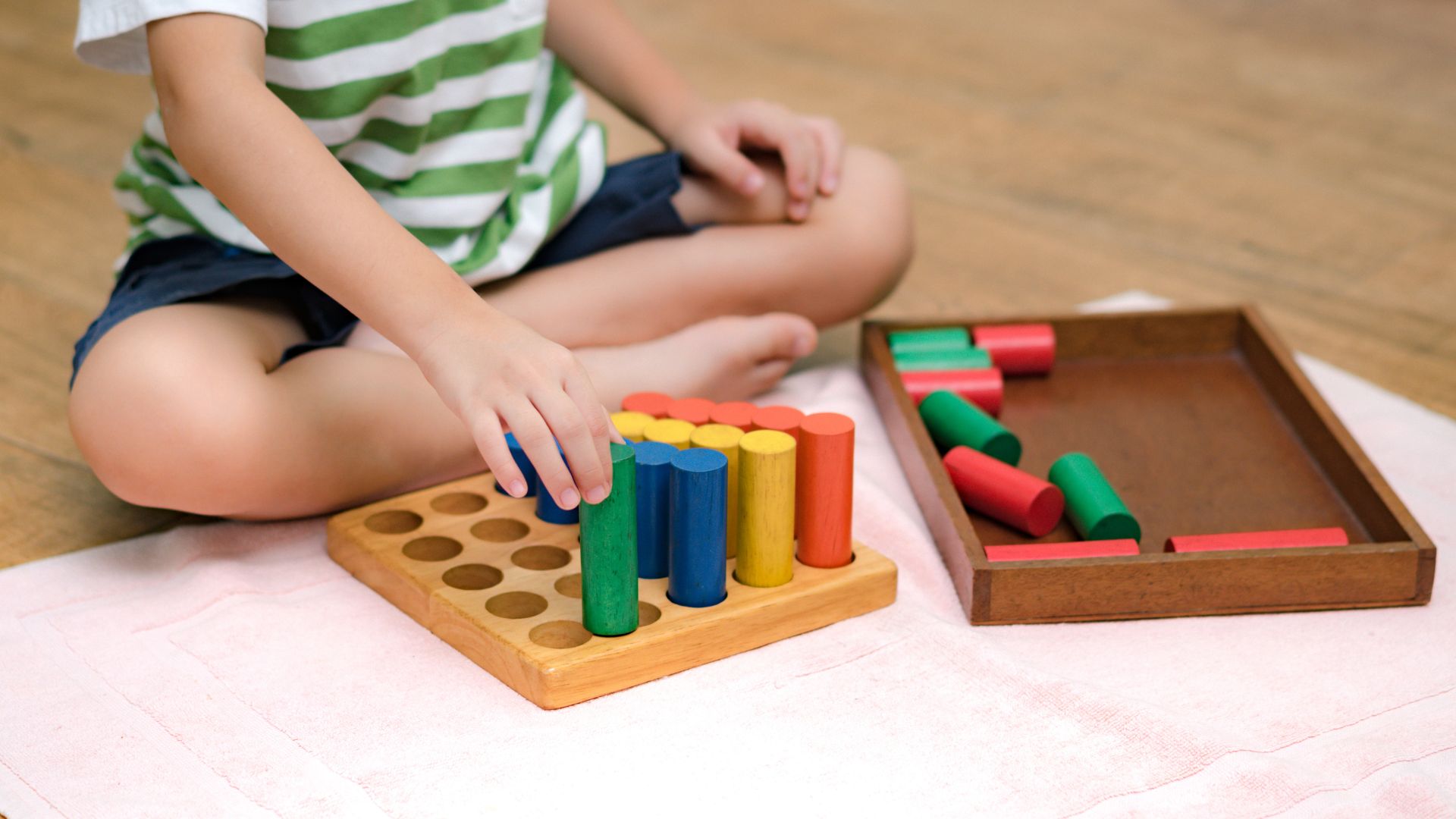
Which free games improve a kid's working memory?
Simple games such as Simon Says, memory tray, memory match, I Spy, and Repeat after me. Did you know that ages 3 to 6 is a period of rapid brain development for kids?
- Simon Says: A classic game that challenges children to remember and repeat a sequence of actions. It promotes working memory by requiring recall and following the given instructions accurately.
- Memory Match: This game involves flipping cards and finding matching pairs. It enhances working memory as children are challenged to remember the location of different cards when making matches.
- I Spy: In this game, children take turns describing an object they see, providing clues for others to guess. It encourages working memory as children have to remember the details of the object described, using their working memory to join in. For younger kids, adapt it by colour, i.e. 'I spy.... something that is green'
- Memory Tray: Place up to five age-appropriate items on a tray, let the child study them for a few minutes then cover the tray with a towel and challenge your kid to remember as many items as possible. This game challenges working memory by requiring the child to remember and retrieve visual information. You can make it harder by adding more items. Note: it's best to run through what they are with the child so they know the names of the items. Also 'try again' is a running theme in this game.
- Repeat after Me: This game involves creating a sequence of sounds, words, or actions that the child must remember and repeat. It strengthens working memory by requiring the child to retain and reproduce the given sequence accurately. Such as 'snails go really slow' followed by 'the shell is really shiny' and 'I love slime'.
A child's memory doesn't develop overnight, it's consistency and gradual increases in complexity that improve working memory. Play these games regularly and you will be supporting your child's development. In addition to these free games here are the four my son loves to play that cost under £20.
Parenting advice, hot topics, best buys and family finance tips delivered straight to your inbox.
Memory games for kids - under £20
These are games that we have and my son absolutely loves playing, and they're all under £20, sometimes you can scan your local Facebook sells for second hand versions. Adding memory games to a child's routine can provide long-lasting benefits and a strong foundation for future learning and development.
1. Shopping List
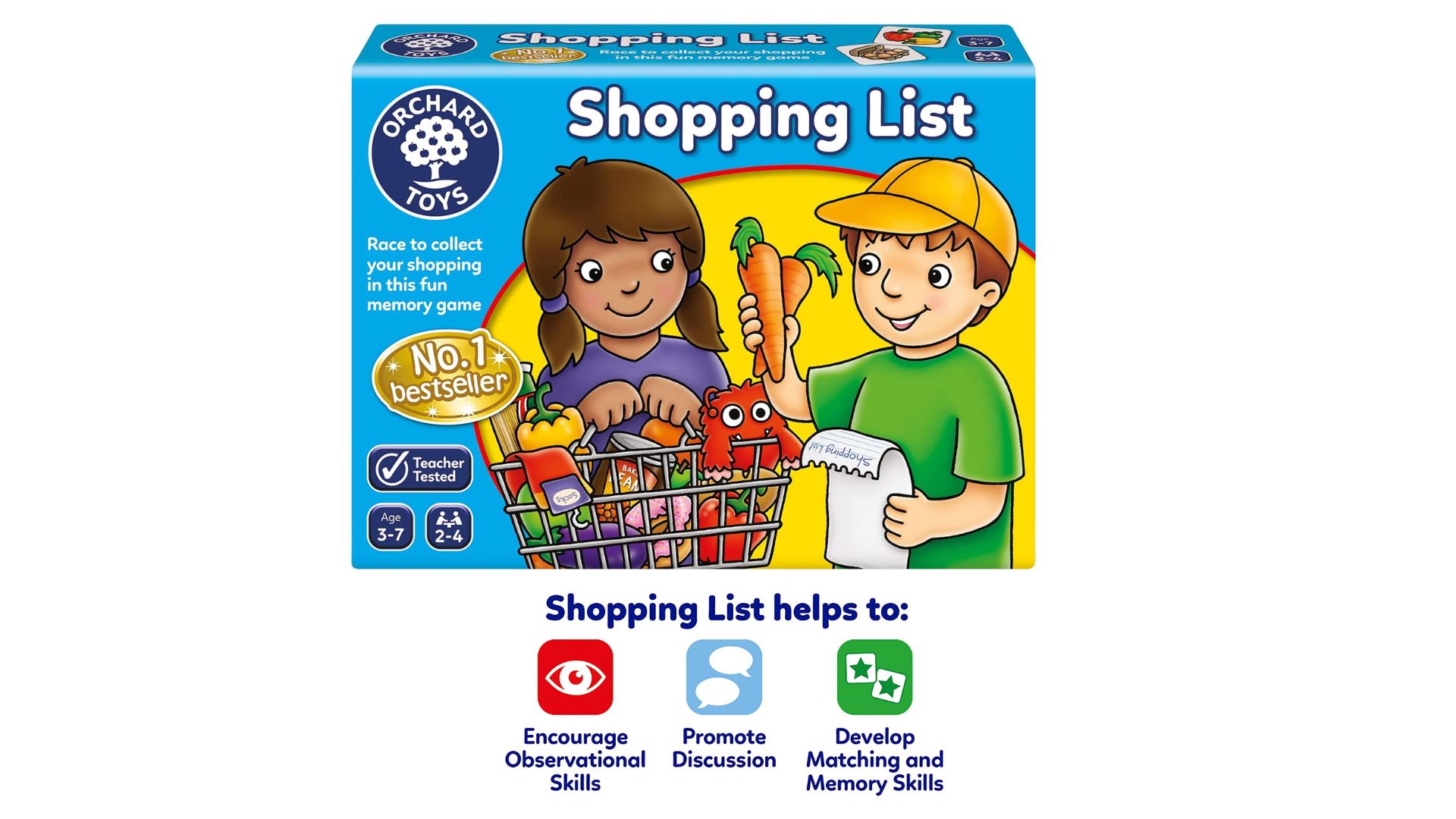
Age suitability: 3-7 years | RRP £10 | Refundable: Yes
As memory games for kids go this Gold Mother & Baby Award Winning game is the best. Promoted as 'encouraging matching and memory skills', my son loves this game, sometimes we play it as a memory matcher, ie placing them all face down. Sometimes we use it as a tool to model how to act in a shop, what to ask, what to say when you pay etc. It's a great all-rounder.
2. Guess in 10
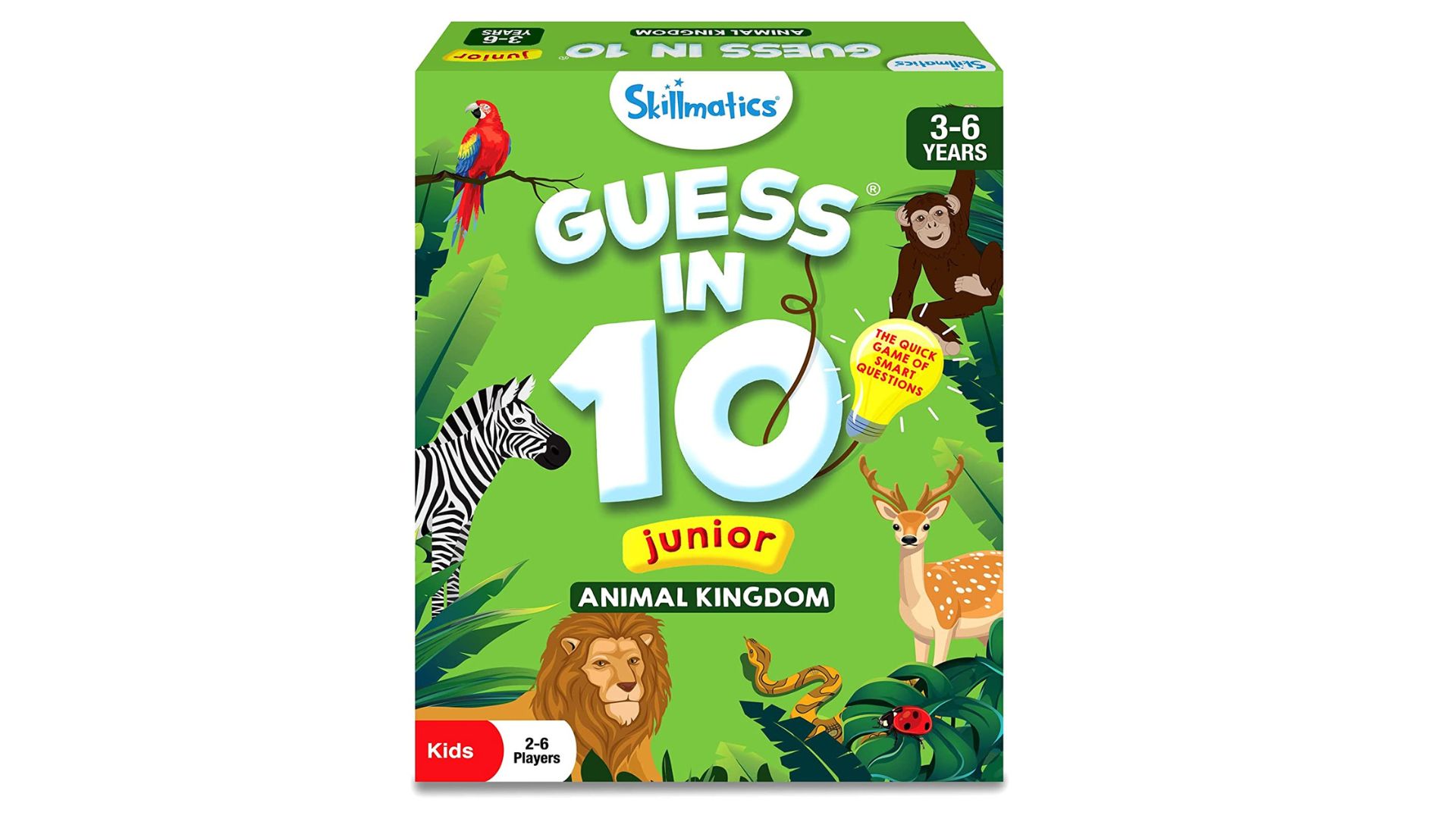
Age suitability: 3-6 years | RRP £12.99 | Refundable: Yes
Ted got this as a birthday gift from a school friend, we had never heard of it. There are guider tiles to help players ask up to 10 questions to guess the animal on the game card, such as what colour is the animal, where does the animal live, does the animal have 4 legs, what does the animal eat? The aim is to win seven game cards. Learing through play is the most effective.
3. Paw Patrol Large memory game
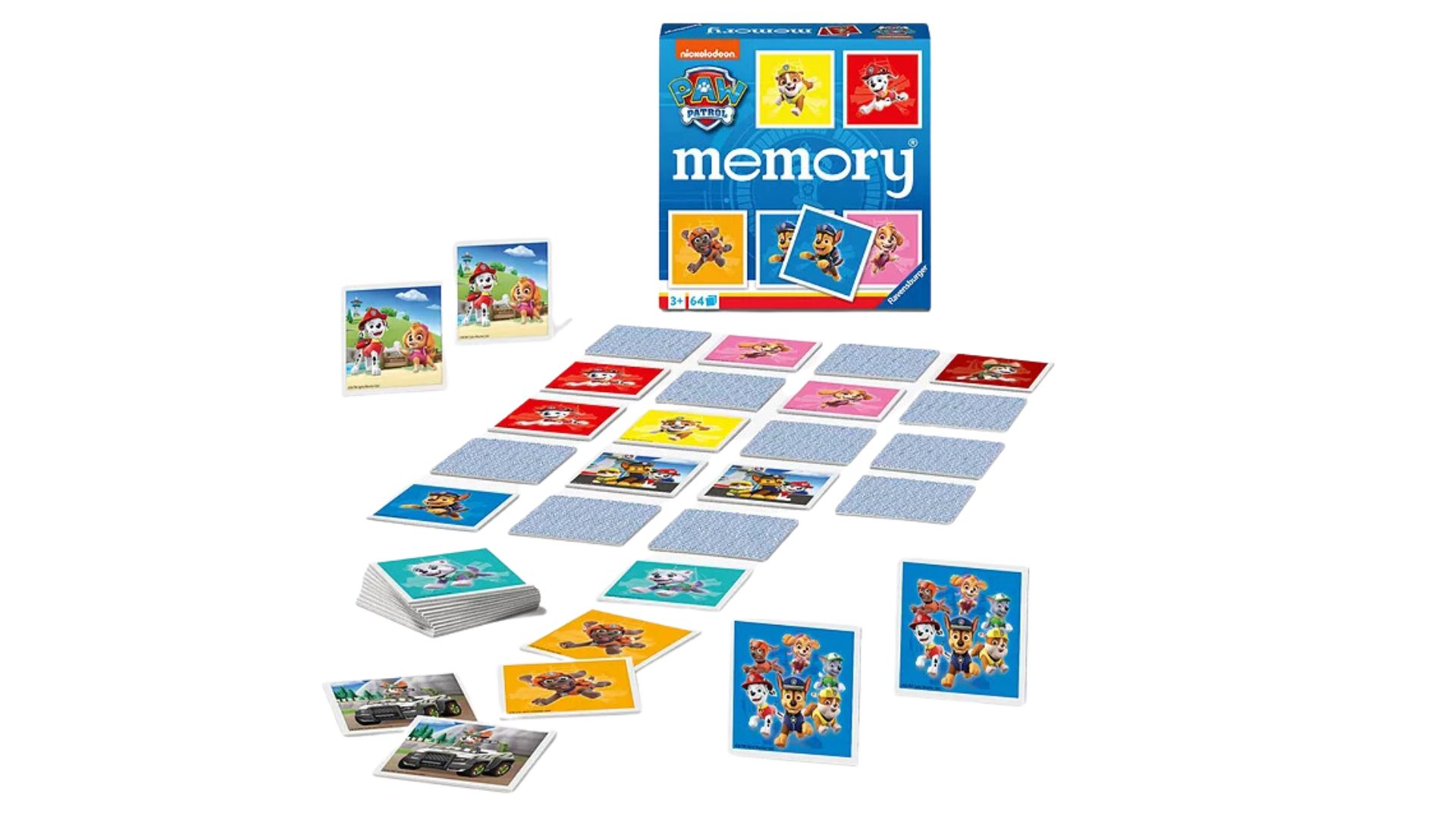
Age suitability: 3-7 years | RRP £11.99 | Refundable: Yes
Ted is obsessed with this game, as a hardcore Paw Patrol fan you can't go wrong. The 64 bright and colourful picture cards feature characters from the popular TV series. Aim of the game is to find and match pairs of Chase, Marshall, Rubble, Skye, Rocky, Zuma, Ryder and more. The perfect game to practice memory and concentration skills, simply flip over and match the most pairs to win.
4. Guess Who
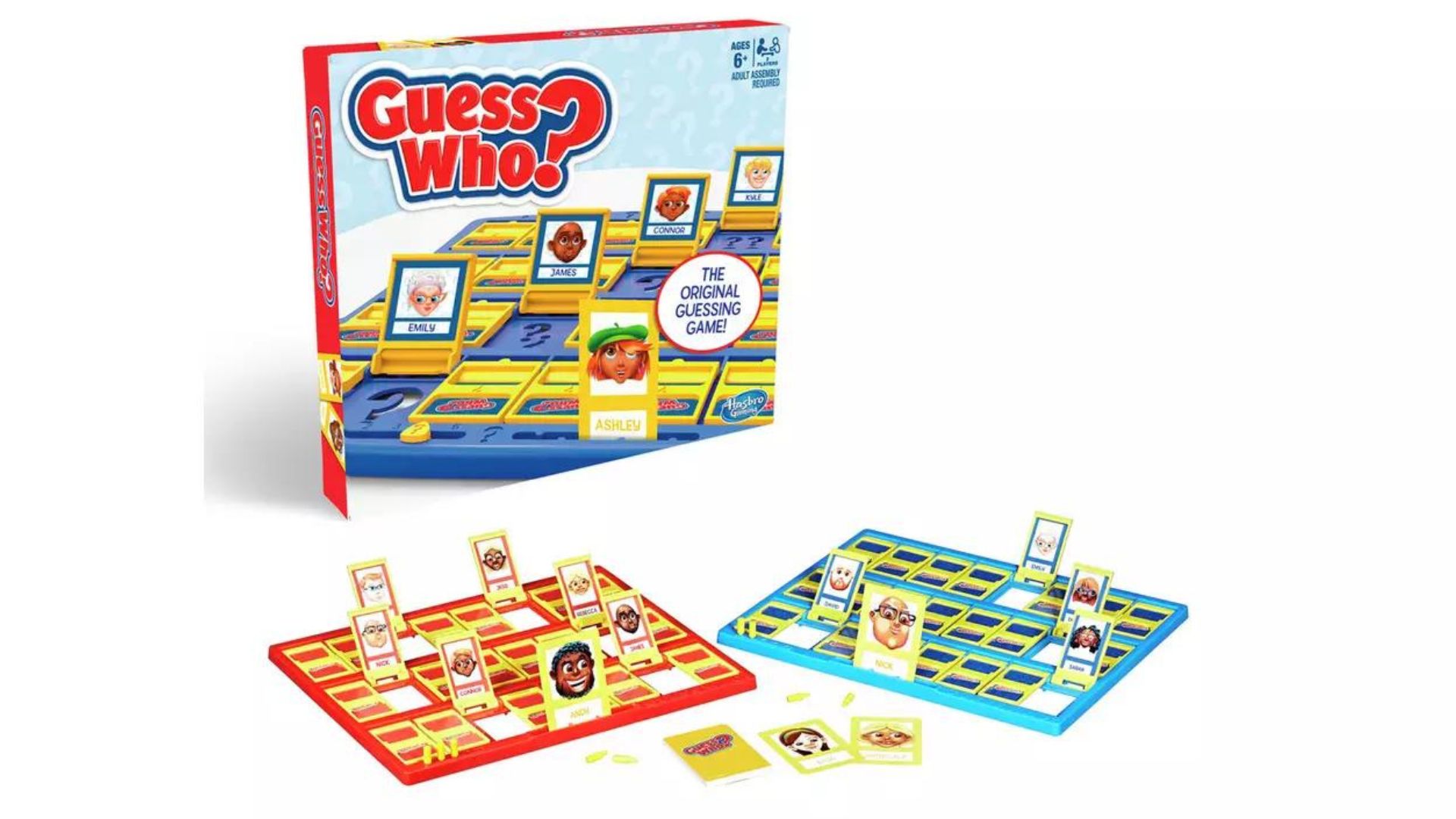
Age suitability: 6+ | RRP £17.99 | Refundable: Yes
So this one is a little out of Ted's age range, we were given it as a 'hand-me-down' from his cousin. He plays with a grown-up on his team and they work as a team to think of the right questions. While this is a little older for him, we work within his age range of ability - it's great for his critical thinking. And when he's bored of it we stop - even mid-game. But it's a great one to start them on, and keep bringing out. The skills are building each time.
Why Memory Games are Good for Kids
- Cognitive Development: Memory games stimulate various cognitive functions such as attention, concentration, and recall. They encourage children to focus, recognize patterns, and retain information. Dr. Jane Stewart, a child psychologist, emphasizes, "Memory games are vital for enhancing memory skills and improving overall cognitive abilities in young children."
- Language Development: Playing memory games helps kids develop language skills. As they pair objects or images, they learn new vocabulary and practice verbal communication. Dr. Lisa Johnson, a language development specialist, affirms, "Memory games promote language development by fostering word association, vocabulary expansion, and improving communication skills."
- Problem-Solving Skills: Memory games challenge children to find matches and solve puzzles, enhancing their problem-solving abilities. Through trial and error, kids learn to strategize and improve their analytical thinking. Dr. David Smith, an early childhood education expert, states, "Memory games cultivate critical thinking and problem-solving skills, as children learn to identify and apply logical patterns."
- Social Skills: Memory games provide opportunities for children to engage in cooperative play, taking turns, and sharing. Playing memory games with peers or family members fosters social interaction, communication, and the development of essential social skills. According to Dr. Sarah Thompson, a child development specialist, "Memory games offer a fun and interactive platform for children to practice social skills such as cooperation, sharing, and turn-taking."
What age can you start memory games with kids?
From around 12 months old. At this stage, simple memory games using colourful objects or pictures can help develop early recognition skills. As children grow, more complex memory games with increasing difficulty can be introduced to challenge and stimulate their cognitive abilities. I used to put on the floor squares of a red, blue, and yellow card, and a pile of blocks with a mix of those colours, and Ted would set about placing the right colour on the right card. Great recall honing.
Looking for more games and toy inspiration? Don't miss our edits of the best toys of 2023, the best outdoor toys, and best toys for 5-year-olds - we've found some great buys.
Video of the Week:
Stephanie has been a journalist since 2008, she is a true dynamo in the world of women's lifestyle and family content. From child development and psychology to delicious recipes, interior inspiration, and fun-packed kids' activities, she covers it all with flair. Whether it's the emotional journey of matrescence, the mental juggling act of being the default parent, or breaking the cycle of parenting patterns, Stephanie knows it inside out backed by her studies in child psychology. Stephanie lives in Kent with her husband and son, Ted. Just keeping on top of school emails/fundraisers/non-uniform days/packed lunches is her second full-time job.